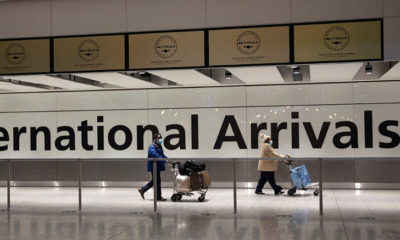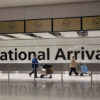 Source: Shutterstock
Source: Shutterstock
If you are traveling on a long flight and vacationing in a different time zone, chances are you will experience the dreaded jet lag. Symptoms of jet lag are mainly sleep-related and include poor sleep quality, inability to fall and stay asleep, finding it hard to stay awake during the daytime and concentration problems. Those suffering may also find they have stomach issues such as constipation, diarrhea and headaches can also occur. Although jet lag can’t be prevented, there are a few things you can do to help minimize its effects.
Before You Travel – Vacationing to a different time zone? During the week before you travel gradually change your sleeping routine day-to-day to adjust to the time zone you will be traveling to.
On the Plane – It’s important to stay hydrated on the plane so drink plenty of water and avoid alcohol and caffeine. Pack a sleep mask and ear-plugs and get as much rest as possible. Make sure you get out of your seat periodically to stretch.
At Your Destination – Set your watch, clock and phone to the new time zone and try to avoid thinking about what time it is at home. Avoid using electronics prior to going to bed. If you are having problems falling asleep you can temporarily try using over-the-counter sleep-aid medication. It is also helpful to get plenty of fresh air and exercise.
Nap – Take a nap whenever you can as you try to adjust to your new time zone. Try to nap no more than 20 minutes.
Avoid Alcohol – For the first 24 hours of your trip try to avoid alcohol and keep well hydrated to combat the effects of plane travel, which can lead to headaches and poor sleep.
Although jet lag can be a real pain and leaving you feeling fuzzy, disoriented and just plain tired, the symptoms will pass in a couple of days.

 Source: Shutterstock
Source: Shutterstock





























